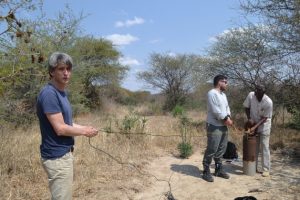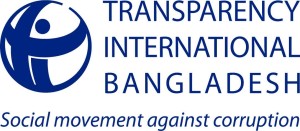Why the new Sustainable Development agenda is “fundamentally compromised” by corporate interests
By Nafeez Ahmed
The SDG stakeholder engagement process draws selectively on the input of civil society groups to promote its public legitimacy, while systematically ignoring the voices that challenge the wider political and economic structures in which the entire process is embedded.
“The big corporate powers via Global Compact and the rich nations have already agreed on what the fig leaf will look like,” said Ladha. “Whatever the SDGs end up saying will, by the very logic of the system they serve, promote a growth-at-all-costs, neoliberal game plan of trickle-down economics and climate destruction.”But Ladha’s colleague, Joe Brewer, emphasised that this apparent sleight-of-hand is ultimately about the power of ideology. Neoliberal capitalism prevails as the default position not just because of a conspiracy of the powerful, but because it is already everywhere. Everyone, even the less powerful, find it difficult to imagine a world outside capitalism — and so the assumption is that such a world is simply not an option:
“The logic of neoliberal capitalism is now the water people swim in culturally. It is largely invisible and most don’t realise how their minds default to the dominant commonsense frames of economics discourse.”
Yet the science is increasingly incontrovertible: capitalism’s endless growth paradigm is unsustainable. The post-capitalist era is dawning. And the frog — in this case, the human — is boiling in a dying paradigm of its own construction that has far outlived its usefulness.
UN records reveal that the intergovernmental body has already marginalised the very groups it claims to be rescuing from poverty, hunger and climate disaster.
At the end of this month, the UN will launch its new 2030 Sustainable Development agenda for “people, planet and prosperity” in New York, where it will be formally adopted by over 150 world leaders.
The culmination of years of consultations between governments, communities and businesses all over the world, there is no doubt that the agenda’s 17 Sustainable Development Goals (SDGs) offer an unprecedented vision of the interdependence of global social, economic and environmental issues.
But records from the SDG process reveal that insiders at the heart of the UN’s intergovernment engagement negotiations have criticised the international body for pandering to the interests of big business and ignoring recommendations from grassroots stakeholders representing the world’s poor.
Formal statements issued earlier this year as part of the UN’s Post-2015 Intergovernmental Negotiations on the SDGs, and published by the UN Sustainable Development Division, show that UN ‘Major Groups’ representing indigenous people, civil society, workers, young people and women remain deeply concerned by the general direction of the SDG process — whereas corporate interests from the rich, industrialised world have viewed the process favourably.
Big business
Among the ‘Major Groups’ engaged in the UN’s SDG process is ‘Business and Industry.’ Members of this group include fossil fuel companies like Statoil USA and Tullow Oil, multinational auto parts manufacturer Bridgestone Corporation, global power management firm Eaton Corporation, agribusiness conglomerate Monsanto, insurance giant Thamesbank, financial services major Bank of America, and hundreds of others from Coca Cola to Walt Disney to Dow Chemical.
These interests have showered the UN’s SDG agenda with glowing praise — calling only for the need for further engagement with business and industry.
In its 24th July statement before one UN SDG review meeting, the Global Business Alliance — set-up by corporations to represent their mutual commitment to “market-based solutions” — proudly told delegates that the process “amplifies our traditional role in economic growth and innovation” and commended the SDG draft:
“An important role for business is recognized throughout.”
But the GBA also called for further changes to “fully capture the special role — and special obligations — that will fall to business as this Agenda plays-out.”
The GBA is a global business network set-up specifically to represent “global, regional, national and sectoral business organisations and associations” at the UN’s SDG process, “as well as companies from multinational corporations… from all geographic regions.”
It describes itself as “having a shared vision that market-based solutions are essential to move toward a more sustainable and equitable world.” At the UN, the alliance works “to ensure that private sector messages will resonate positively and coherently.”
The GBA represents global and regional business associations across key industries in the financial, mining, agricultural, fertiliser, pharmaceutical, oil and gas, and transport sectors.
The alliance’s mission can be discerned from a GBA statement in January made at the SDG Stakeholder Preparatory Forum at the UN Headquarters in New York.
While noting that business “enthusiastically welcomes” the sustainable development agenda, the GBA declared that its main priority is to create “policy environments” in poor countries “that are conducive to both domestic and international private finance.”
By re-structuring poorer economies to “mobilise and attract domestic and international investment”, the GBA claimed, they can build the “infrastructure necessary to spur inclusive economic growth.”
The problem is that this business-centric vision of “inclusive economic growth” is barely different from the failed neoliberal paradigm of market fundamentalism, which critics say has widened inequalities and accelerated debt.
Despite claims that the UN’s previous Millennium Development Goals (MDG) have succeeded in halving global poverty since the 1990s, there is good reason to question this narrative.
Today, 4.3 billion people live on less than $5 a day. Although higher than the World Bank poverty measure at $1.25 a day, the development charity ActionAid showed in a 2013 report that a more realistic poverty measure would be under $10 a day.
Yet far from decreasing, since 1990 the number of people living under $10 a day has increased by 25%. Global poverty has not reduced — it’s got worse.
According to Dr. Jason Hickel of the London School of Economics, this is not surprising because the “claim that growth can eradicate poverty is not scientifically robust.” Hickel told me that this might “sound reasonable if you believe in trickle-down economics” — as do most conventional economists — “but the past forty years have delivered precious little evidence for this paradigm. The only way that the SDGs can claim that growth will eradicate poverty is by pushing the poverty line and the hunger line to incredibly low levels… lower than humans can actually survive on.”
I asked Hickel why, despite so much internal criticism from UN stakeholders within the SDG process itself, these concerns had not impacted on the text of the SDG ‘Zero Draft.’ “In an early version of the Zero Draft, there was a commitment to replace GDP with an alternative measure of economic well-being. But somehow that disappeared from the final text,” said Hickel. “I don’t know what happened behind the scenes.”
He refers to an account from someone working with the Brussels-based CIDSE (International Cooperation for Development and Solidarity), a network of 17 Catholic development agencies based in Europe and North America, “who had been involved with the negotiations on the Zero Draft…
“She told me that the process was highly compromised, and she quit in disgust — but she told me she was not allowed to share details about what she knew.”
Excluding civil society
This allegation is borne out by UN records, which show that its own Major Groups representing the very people the global institution professes to be empowering — poor people in developing countries — are increasingly sceptical of the SDG agenda.
A scathing joint civil society statement to the UN early last month expressed “alarm” at “the extraordinary level of confidence that governments are placing in the private sector to finance and implement the Post- 2015 Development Agenda.”
While the GBA’s UN submissions consistently blamed corrupt governments and legal frameworks in poor countries for lack of investment, the UN Major Group for Civil Society pointed out that the real obstacle is tax avoidance by foreign investors and corporate contempt for human rights:
“The notion that we need to unlock the potential of the private sector is fundamentally contradicted by the trillions of dollars currently leaving developing countries through corporate tax evasion and other illicit financial flows. Added to this is a general lack of accountability despite prolific evidence of systemic human rights abuses perpetrated by corporations that undermine development efforts.”
The civil society statement also points to parallel efforts by Western governments to forge new ‘free-trade’ agreements, such as the Transatlantic Trade and Investment Partnership (TTIP) along with proposed Investor-State Dispute Settlement (ISDS) clauses.
These new trade and investment frameworks are being negotiated by governments in secret without public accountability. The UN’s civil society group notes that the ISDS clauses “empower corporations to sue governments for reducing the value of investments through regulations that promote human rights, the environment, and labor standards.”
Yet the SDGs offer little to protect vulnerable communities in the face of such corporate encroachment.
Instead, as the UN’s civil society group observes, the SDG process is ignoring “growing evidence that privatisation of essential social services exacerbates inequalities in access and marginalises the poorest.”
A further civil society statement to the UN on the Means of Implementation of the SDG agenda in late July criticised the process for “failing to address” structural and institutional “barriers to people-centred development rooted in an unjust global economic system.”
(This exclusive is published by INSURGE INTELLIGENCE, a new crowd-funded investigative journalism project)




